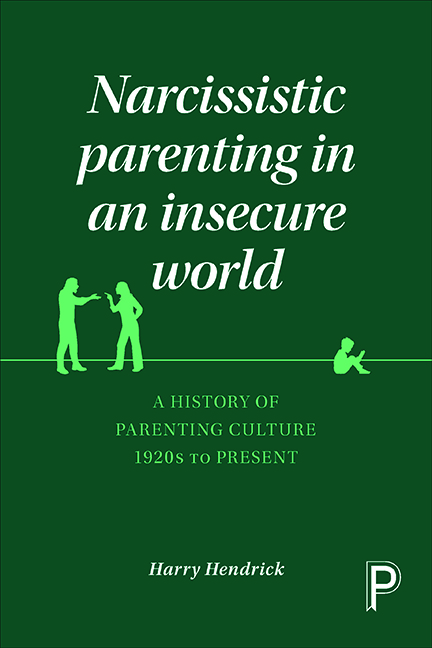Book contents
- Frontmatter
- Dedication
- Contents
- About the author
- Acknowledgements
- Introduction
- Part One The origins of social democracy’s family ideal: 1920s–1940s
- Part Two Characteristics of the ‘Golden Age’: 1940s–early 1970s
- Part Three Influences and examples from the USA
- Part Four Parental narcissism in neoliberal times: 1970s to the present
- Part Five Therapeutic reflections
- Index
four - The ‘long sixties’: 1958–1974
Published online by Cambridge University Press: 05 April 2022
- Frontmatter
- Dedication
- Contents
- About the author
- Acknowledgements
- Introduction
- Part One The origins of social democracy’s family ideal: 1920s–1940s
- Part Two Characteristics of the ‘Golden Age’: 1940s–early 1970s
- Part Three Influences and examples from the USA
- Part Four Parental narcissism in neoliberal times: 1970s to the present
- Part Five Therapeutic reflections
- Index
Summary
‘Modernity is not one discourse, but the site of intersection of several, which do not sit easily together.’
The ‘long sixties’ was much more than a permissive moment; rather it was a historic period of social and cultural change that brought about the ‘end of Victorianism’. The optimism of the late 1950s, when the British people, it was said, ‘had never had it so good’, was very different from the ‘false optimism’ of the early 1970s as the country approached the moment in 1976 when the Labour politician Anthony Crosland announced ‘The party is over’, meaning the end of the post-war ‘Golden Age’. During the years circa 1958–1974, through a series of statutes, Britain became a more humane, civilised and tolerant society, the most liberal in Europe – if not the world. In areas such as capital punishment, abortion, divorce, homosexuality, theatre and literary censorship, contraception, and equal pay, progressive legislation made Britain an easier place in which to live. In 1959, the future Home Secretary Roy Jenkins, along with Crosland, one of the architects of the permissive society, exhorted prospective voters: ‘Let us be on the side of those who want people to be free to live their own lives, to make their own mistakes, and to decide, in an adult way and provided they do not infringe the rights of others, the code by which they wish to live.’ This recommendation was not quite as open-ended as it seemed and there was clearly an element of ‘moral engineering’ involved. But at the time it was a worthy ambition pointing toward a more enlightened conception of social democracy.
This is not to say that there was universal approval for the reforms, as numerous surveys revealed the often huge gulf between popular and liberal opinion. In evaluating these years, the record of reform has to be set against the political indulgences, the immaturities, the greed, the violence and the way in which hedonistic desire was confused with vision, which also characterised the long sixties. By the late 1950s, with the coming of affluence and consumerism, modernity seemed to have less to do with rationality and restraint, than with ‘immediacy, impact and sensation’ – character, perhaps partly reflecting growing secularism, began to give way to ‘personality’.
- Type
- Chapter
- Information
- Narcissistic Parenting in an Insecure WorldA History of Parenting Culture 1920s to Present, pp. 129 - 164Publisher: Bristol University PressPrint publication year: 2016



